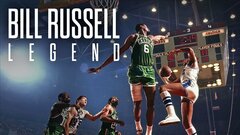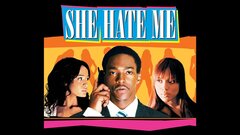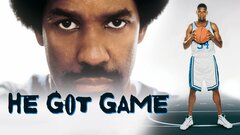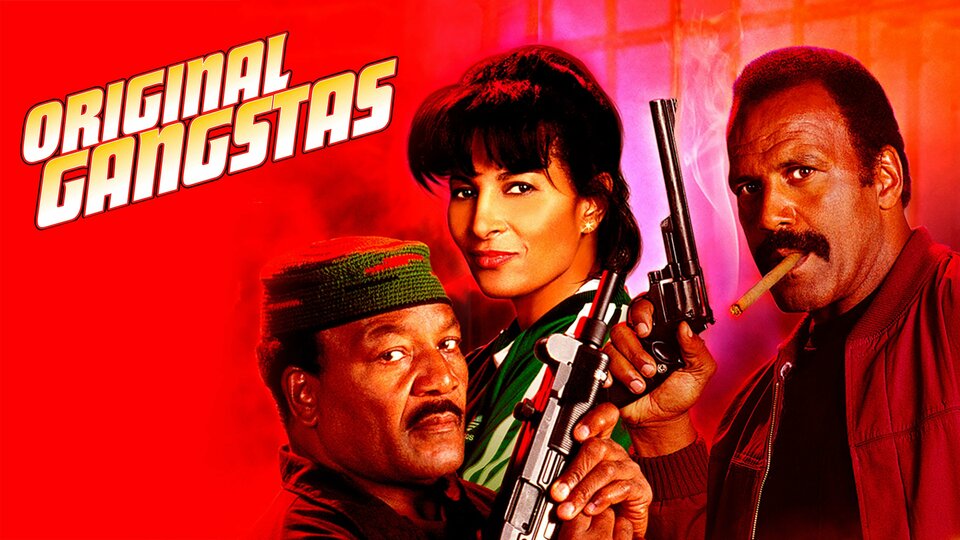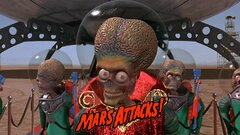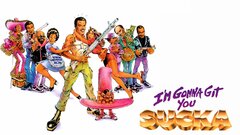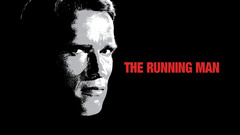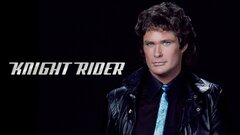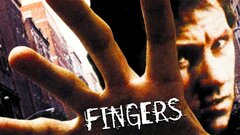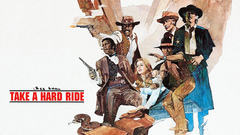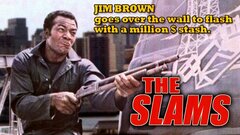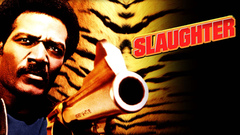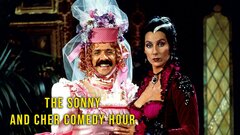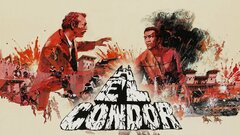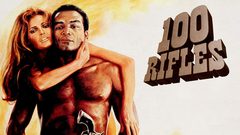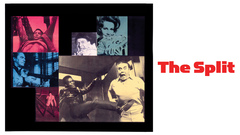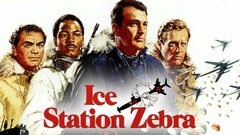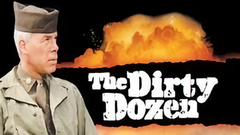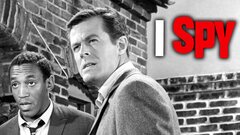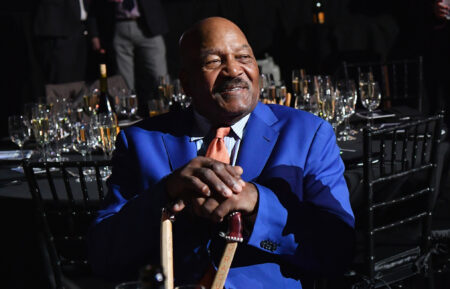Considered by many to be the single greatest player in the history of football, Jim Brown left a record-breaking nine years with the Cleveland Browns at the peak of his abilities to become the strong and silent hero of numerous action films in the 1970s and 1980s, including "The Dirty Dozen" (1968), "Slaughter" (1972) and "I'm Gonna Get You Sucka" (1987). A fierce, unstoppable combatant on the football field, Brown's athleticism and confidence carried over to his movies, most notably the "blaxploitation" films like "Slaughter" and "Black Gunn" (1972), which minted him as an action hero for the African-American community. Brown served that demographic both on and off the screen through a variety of social programs of his own devising, including the Black Economic Union and the Amer-I-Can Program, which supported black businesses and ex-convicts looking to start their lives over.
As a sports hero, screen icon and civil rights activist, Jim Brown led one of the most accomplished lives of the late 20th century.
James Nathaniel Brown was born on Feb. 17, 1936 in the town of St. Simons, located on the island of the same name off the coast of Georgia. The son of professional boxer, Swinton Brown, and his wife, Theresa, he was raised primarily by his grandmother before moving to Manhasset, NY to join his mother, who worked there as a domestic housekeeper. As a student at Manhasset Secondary School, Brown showed his enormous gift for sports by earning 13 letters, including football, baseball, basketball, track and lacrosse. He continued to display his talents as a student at Syracuse University, where he set school records for highest rush average and most rushing touchdowns. In his senior year, he was unanimously elected to the first-team All-American, but even more impressive was the fact that while Brown was breaking records on the gridiron, he was also the second highest scoring player on the Syracuse basketball team, and was the second highest scoring player in American collegiate lacrosse, with 43 goals in 10 games to his name.
Brown's future with the National Football League was all but assured, and in 1956, he was selected in the first round of the professional draft by the Cleveland Browns. There, he exceeded his already stellar college accomplishments by becoming one of the most formidable players the football world had ever seen. In the nine years he played for Cleveland, Brown amassed an astonishing number of records, including the all-time leader in rushing yards (1,863), rushing touchdowns - 100 in all - as well as total touchdowns, all-purpose yards and most yards averaged per game for receivers. Brown was also voted into the Pro Bowl every season he played as a professional, and scored three touchdowns alone in his final Bowl game. The key to Brown's success was his physical strength and agility; it was virtually impossible for one player to bring him down when he broke into a full run, and his philosophy regarding his opponents was simple: if someone tackled Brown, he made sure that the other player felt as much pain as he did. When Brown retired from the Browns in 1966, he left behind a legacy that elevated him from great player to legend in the minds of football fans across the country.
Brown had begun to explore acting as a second career while still a player with Cleveland. He made his screen debut as a Buffalo Soldier who aided Richard Boone in seeking out Edmond O'Brien's renegade Confederate veteran in "Rio Conchos" (1964). After his retirement, Brown dove headlong into Hollywood as Robert Jefferson, one of the "Dirty Dozen" (1968). The role, which required Brown to display his supernatural speed in an ill-fated sprint across the courtyard of a Nazi stronghold under siege, largely defined his early screen roles by their pure physicality and lack of strong characterization. Eventually, Brown rose from supporting roles in mainstream features like "Ice Station Zebra" (1968) to the male lead in low-budget action and crime films like "The Split" (1968) and "Riot" (1969). In these and other pictures, Brown projected an air of strength, cool and capability that made him exceptionally popular with both black and white audiences. He was also a ruggedly handsome man, and made for a surprisingly smooth onscreen lover, most notably in the offbeat "Grasshopper" (1969), as a sympathetic former football champ who married flighty Jacqueline Bisset, and the Western "100 Rifles" (1969), where he shared the first interracial love scene with Raquel Welch. By 1970, he was sharing top billing with Oscar winners George Kennedy and Fredric March in "tick tick tick," a racially charged drama about a newly elected black sheriff (Brown) who faced opposition from the predominately white members of his small town.
Brown's elevation from black actor to black superstar came via the wave of urban action or "blaxploitation" films that followed in the wake of "Shaft" (1971). Brown's first foray into the low-budget action world came with "Slaughter" (1972), an ultra-violent drama about a former Green Beret (Brown) who took on Rip Torn and the mobsters that killed his parents. The film's phenomenal success was naturally followed by a sequel, "Slaughter's Big Rip-Off" (1973), and launched Brown as an action star who operated by his own rules, which often ran opposite to that of the white majority, and who dispensed justice with the same violent finality as Hollywood gunslingers of the past. And if the films rarely varied in plot - Brown avenged his brother's death by mobsters in "Black Gunn" (1972), avenged his friend's death by mobsters in "Slaughter's Big Rip-Off" (1973), and saved the world from white supremacists in the delirious "Three the Hard Way" (1974), which co-starred fellow former gridiron great Fred Williamson and karate champ Jim Kelly. Critics largely dismissed the pictures and Brown's performance, though he received solid reviews for his turn as a cruel womanizer in James Toback's bizarre drama, "Fingers" (1978).
As the blaxploitation wave reached its crest in the late 1970s, Brown began to step away from the screen to invest in and promote black-owned businesses through the Black Economic Union, which he helped to found in 1968. In 1980, he became president of Richard Pryor's Indigo Productions, as well as The Pryor Company, for which he served as executive producer of the comic's concert movie, "Richard Pryor Here and Now" (1983). He was also involved in Coors' Golden Door and Barriers, a pair of job-creation projects that helped ex-convicts reenter society, as well as the Vital Issues Project, which performed a similar duty. In 1988, Brown founded and became president of The Amer-I-Can Program, which provided life and management skills to young urban males, with a particular focus on former gang members. Brown's efforts with these and other programs made him a leading figure in the African-American community, as well as a member of the FBI's watch list in the 1970s.
In the late 1980s and 1990s, Brown's acting career received a boost with memorable supporting roles in several popular films. He played the relentless killer, Fireball, who pursued wrongly accused criminal Arnold Schwarzenegger in "The Running Man" (1987), and parodied his own black action past in Keenan Ivory Wayans' "I'm Gonna Get You Sucka" (1987), which reunited him with fellow '70s tough guys Isaac Hayes, Bernie Casey and Antonio Fargas. One of his favorite roles came in Tim Burton's quirky "Mars Attacks!" (1996), which teamed him with another blaxploitation icon, Pam Grier, as middle-aged Las Vegas workers who fight the invading alien menace. Well into his sixties by this point, Brown still cut a formidable figure, proving he could still carry an action film with 1996's "Original Gangstas," in which his former street tough returned to his hometown to wipe out a new breed of gangsters with the help of Williamson, Grier, Casey and Ron O'Neal of "Superfly" (1971) fame. During this period, Brown also threatened to return to professional football when Pittsburgh Steelers running back Franco Harris appeared ready to break his rushing record. Brown openly disliked Harris' style, and wished to keep the younger man from usurping his title. Harris eventually missed the chance to beat Brown's record, which was later bested by the Chicago Bears' Walter Payton and Steeler Jerome Bettis.
In the late 1990s, Brown's screen output slowed to a few small but notable turns: he joined his fellow "Dirty Dozen" co-stars Ernest Borgnine, George Kennedy and Clint Walker to provide the voices of military action figures come to life in Joe Dante's imaginative "Small Soldiers" (1998), and as a former player-turned-coach in Oliver Stone's "Any Given Sunday" (1999). He also appeared in Spike Lee's "He Got Game" (1998) and "She Hate Me" (2004) in diametrically opposite roles: in the former, he played a tough security guard, while in the latter, he was the ailing, diabetic father of the film's hero (Anthony Mackie). Lee later directed the documentary "Jim Brown: All-American" (2002), which detailed his achievements as an athlete, actor and activist.
Brown began collecting accolades for his extraordinary sports career as early as 1971, when he was inducted into the Pro Football Hall of Fame. He later followed this by elections to the College Football Hall of Fame and Lacrosse Hall of Fame, which made him one of the few s athletes to be a Hall of Fame member in more than one sport. In 2002, The Sporting News named him the greatest professional football player in the history of the game, while "The Top 100: NFL's Greatest Players" (NFL Network, 2010) placed him in the No. 2 spot behind Jerry Rice. Jim Brown died on May 18, 2023 at the age of 87.
